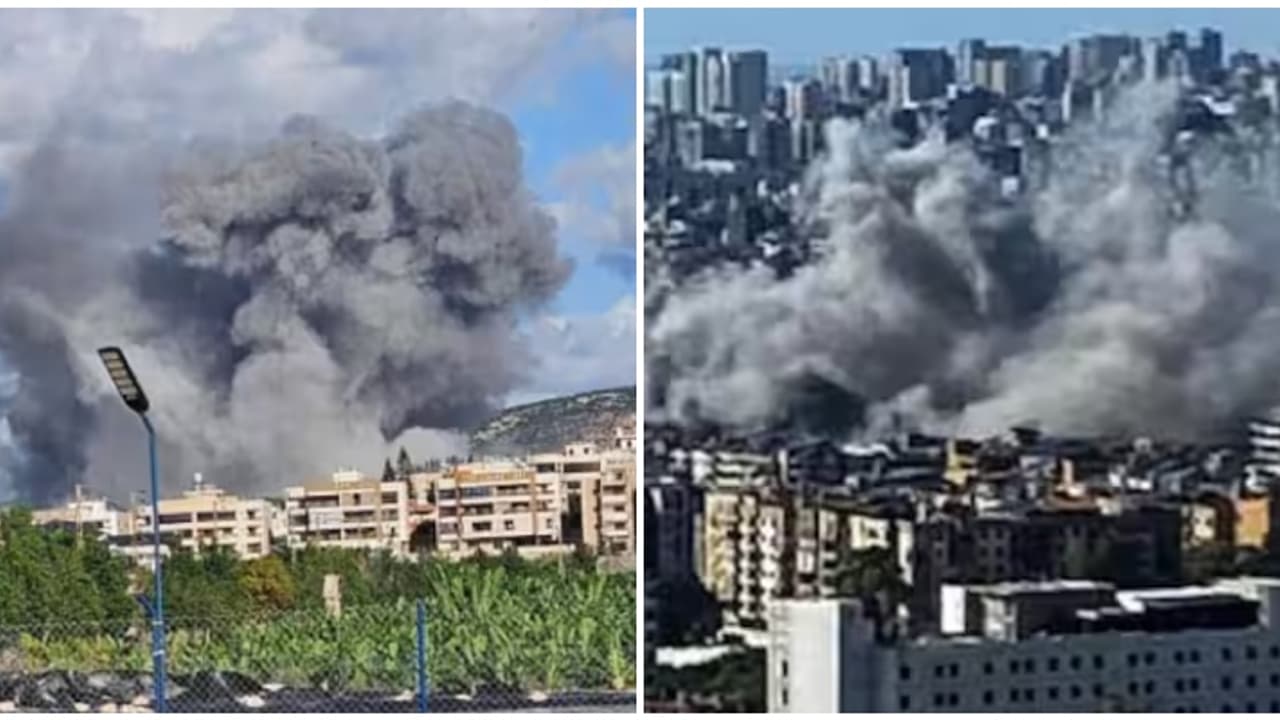At least 492 people were killed and nearly 1,650 injured in Lebanon on Monday following a relentless barrage of Israeli airstrikes targeting the southern and eastern regions of the country, as well as the southern suburbs of Beirut.
At least 492 people were killed, including 35 children and 58 women, and nearly 1,650 injured in Lebanon on Monday following a relentless barrage of Israeli airstrikes targeting the southern and eastern regions of the country, as well as the southern suburbs of Beirut. The Lebanese health ministry confirmed the death toll, which is expected to rise as more information emerges from the affected areas. The strikes are part of Israel’s escalating campaign against Hezbollah, a militant group that has been engaged in continuous skirmishes with Israeli forces since the 7 October Hamas attack.

Israeli Defense Minister Yoav Gallant stated that Monday's airstrikes in Lebanon have destroyed tens of thousands of Hezbollah rockets, marking what he called the most challenging week for the Iranian-backed movement since its formation. Gallant emphasized that Israel is committed to significantly weakening Hezbollah’s military capabilities, a key goal of the ongoing campaign.
In a statement to the public, Gallant urged Israeli citizens to remain calm and compliant with home front defense guidelines as military operations against Hezbollah are expected to expand. He also briefed US Defense Secretary Lloyd Austin on the situation overnight, discussing Hezbollah threats and broader regional concerns involving Iran and its proxies.
Herzi Halevi, Chief of the General Staff of the Israel Defense Forces (IDF), stated that Israeli forces are preparing for the next phase of their operation in Lebanon. After launching a major wave of airstrikes on Monday morning, the Israeli military remains on high alert, though a ground invasion is not yet planned, according to an anonymous military official. Instead, Israel has focused on aerial operations aimed at curbing Hezbollah’s ability to launch strikes into Israeli territory.
Israeli Prime Minister Benjamin Netanyahu, in his first statement since the attacks began, reaffirmed his government’s intention to shift the balance of power in the north by targeting Hezbollah’s missile and rocket arsenal. Netanyahu warned of complicated days ahead and urged Israeli citizens to follow safety instructions closely.
In addition to the intense bombardments in southern Lebanon, Israel carried out a "limited" airstrike in the Dahieh district of Beirut, a Hezbollah stronghold. Israeli media reported that the target was Ali Karaki, the third-highest-ranking Hezbollah military commander, though the group later confirmed Karaki was unharmed and in a secure location.
The Israeli military has identified Beirut as a target, though specific details regarding future strikes remain unclear. The attack on Dahieh is the latest in a series of assaults on Hezbollah positions across Lebanon, raising concerns of further escalation in the Lebanese capital.
The United Nations peacekeeping force in Lebanon (UNIFIL) issued a statement expressing “grave concern” for the safety of civilians in southern Lebanon amid what is being described as the most intense Israeli bombing campaign since last October. UNIFIL called for de-escalation on both sides and urged immediate steps to protect civilians from further harm.
In Lebanon, the government is grappling with the humanitarian fallout of the ongoing attacks. Najib Mikati, the country’s caretaker prime minister, condemned the airstrikes as “genocide in every sense of the word” during a cabinet meeting in Beirut. Mikati accused Israel of attempting to destroy Lebanese towns and villages and called on the United Nations and the international community to intervene and halt the violence.
As airstrikes are expected to continue, Lebanon has opened schools in Beirut, Tripoli, and other regions as emergency shelters to accommodate the growing number of displaced people. Chaotic scenes have unfolded across the country as residents flee the bombing, contributing to widespread disruption and panic.
In a related development, the United States criticized Israel’s recent raid on the Al Jazeera office in Ramallah, in the occupied West Bank. Israeli forces shut down the network's office and issued a 45-day closure order, drawing rebuke from Washington, which described the action as “inconsistent with US support for freedom of the press.”
The conflict in Lebanon comes against the backdrop of rising tensions across the region, particularly following the 7 October Hamas attacks on Israel, which triggered the current hostilities. While Hezbollah and Israel have been engaged in regular exchanges of fire, both sides have largely refrained from crossing the UN-drawn Blue Line, which separates the two countries.
However, the latest wave of Israeli airstrikes, including those targeting Baalbek in the Beqaa Valley, indicates a significant escalation. Residents in these areas were warned to evacuate before the airstrikes began, though the full extent of the damage remains unclear.
As the violence continues, there are growing concerns that Israel’s campaign against Hezbollah could spill into a broader conflict, further destabilizing the already volatile Middle East.
Senior United Nations officials have called for an immediate and unconditional ceasefire, urging both Hezbollah and Israel to prioritize the safety of civilians. In a statement issued ahead of the UN General Assembly meeting in New York, officials stated: “These atrocities must end,” and called for the release of all hostages and arbitrarily detained individuals.
Despite international calls for peace, the situation on the ground remains dire, with no clear resolution in sight. For now, Lebanon is bracing for further attacks as Israel vows to continue its campaign to neutralize Hezbollah's military presence.
